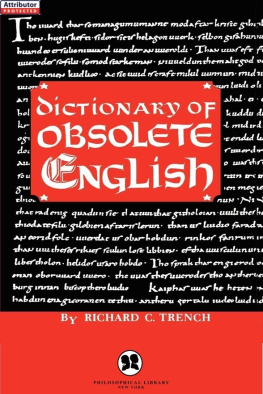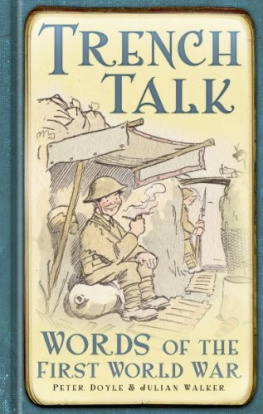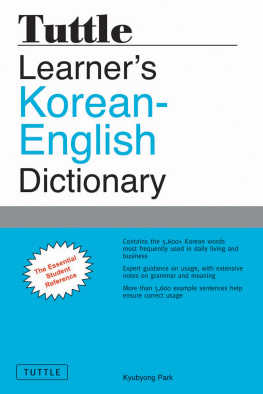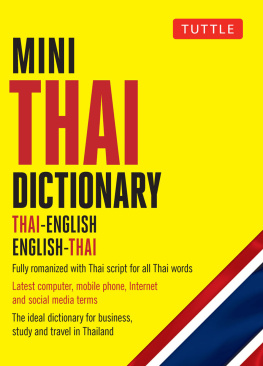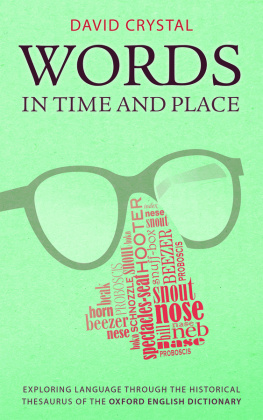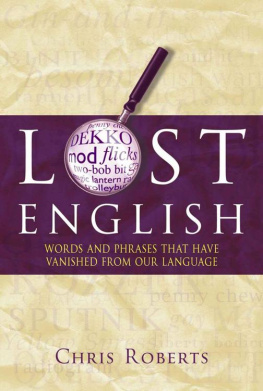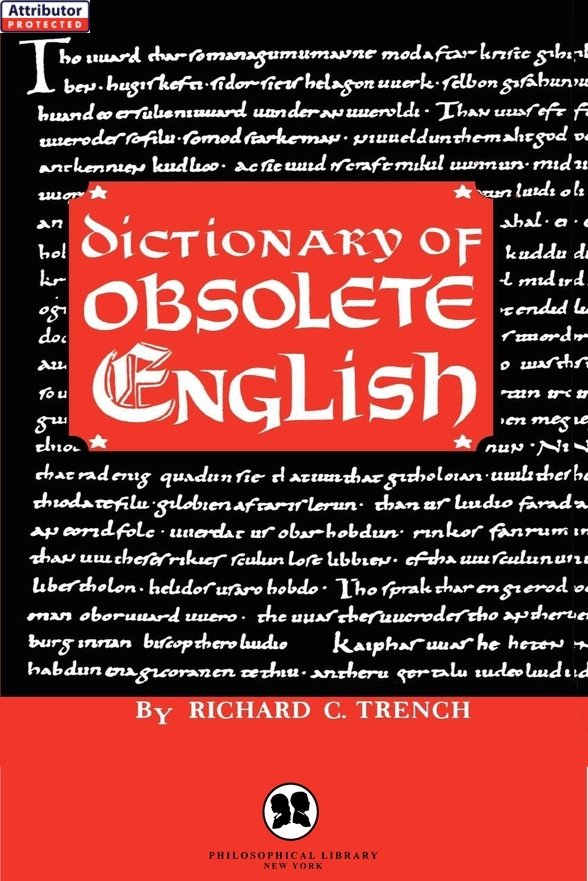A BANDON . Bann, a word common to all the Germanic languages, and surviving in our banns of marriage, is open proclamation. In low Latin it takes the forms of bannus, bannum, edict or interdict; while in early French we have bandon, almost always with the particle prefixed, bandon ; thus vendre bandon, to sell by outcry. From this we have the verb abandonare, which has passed into all the Romance languages ; it is to proclaim, announce, but more often denounce, a bandit (bandetto) being a denounced man, a proclaimed outlaw. Here is the point of contact between the present use of abandon and the past. What you denounce, you loosen all ties which bind you to it, you detach yourself from it, you forsake, in our modern sense of the word, you abandon it.
Blessed shall ye be when men shall hate you, and abandon your name as evil [et ejecerint nomen vestrum tanquam malum, Vulg.] for the Son of mans sake. Luke vi. 22. Rheims.
Beggar. Madame wife, they say that I have dreamed And slept above some fifteen years or more.
Lady. Aye, and the time seems thirty unto me, Being all this time abandoned from thy bed.
S HAKESPEARE , The Taming of the Shrew , act i. sc. 1.
A CHIEVEMENT . This fuller form of the word is seldom if ever used now, as it was often of old, where hatchment is intended.
As if a herald in the achievement of a king should commit the indecorum to set his helmet sideways and close ; not full-faced and open, as the posture of direction and command.M ILTON , Tetrachordon.
A CT . The verb to actuate seems of comparatively late introduction into the language. The first example of it which our Dictionaries give is drawn from the works of the Latinist, Sir Thomas Browne, of Norwich. I have also met it in Jeremy Taylor. But even for some time after actuate was introducedas late, we see, as Pope,act did often the work which actuate alone does now.
Within, perhaps, they are as proud as Lucifer, as covetous as Demas, as false as Judas, and in the whole course of their conversation act and are acted , not by devotion, but design.S OUTH . Sermons , 1737, vol. ii. p. 391.
Many offer at the effects of friendship ; but they do not last. They are promising at the beginning, but they fail and jade and tire in the prosecution. For most people in the world are acted by levity and humour, and by strange and irrational changes.Id. ib, vol. ii. p. 73.
Self-love, the spring of motion, acts the soul.
P OPE , Essay on Man , ep. 2.
A DAMANT . It is difficult to trace the exact motives which induced the transferring of this name to the lodestone ; but it is common enough in our best English writers, thus in Chaucer, Bacon, and Shakespeare ; as is aimant in French, and iman in Spanish. See Diamond, and the art. Adamant in Appendix A to the Dictionary, of the Bible.
Right as an adamant ywis
Can drawen to him subtelly
The yron that is laid thereby,
So draweth folkes hearts ywis
Silver and gold that yeven is.
C HAUCER , Romaunt of the Rose , 1182.
Demetrius. Hence, get thee gone, and follow me no more.
Helena. You draw me, you hard-hearted adamant ;
And yet you draw not iron, for my heart
Is true as steel.
S HAKESPEARE , Midsummer Nights Dream, act ii. sc. 1.
If you will have a young man to put his travel in little room, when he stayeth in one city or town, let him change his lodging from one end and part of the town to another ; which is a great adamant of acquaintance.B ACO N, Essays , 18.
A DMIRAL . This was a title often given in the seventeenth century to the principal and leading vessel in a fleet ; the admiral-galley North ( Plutarchs Lives ) calls it.
Falstaff (to Bardolph). Thou art our admiral ; thou bearest the lantern in the poopbut tis the nose of thee ; thou art the knight of the Burning Lamp.S HAKESPEARE, I Henry IV., act iii. sc. 3.
Lincoln spake what was fit for comfort, and did what he was able for redress. He looked like the lanthorn in the admiral , by which the rest of the fleet did steer their course.H ACKET , Life of Archbishop Williams , part ii. p. 143.
His spearto equal which the tallest pine
Hewn on Norwegian hills, to be the mast
Of some great ammiral , were but a wand
He walked with, to support uneasy steps
Over the burning marle.
M ILTON , Paradise Lost , b. i.
The admiral of the Spanish Armada was a Flemish ship.H AWKINS , Observations &c., 1622, p. 9.
Neither is it to be admired that Henry [the Fourth], who was a wise as well as a valiant prince, should be pleased to have the greatest wit of those times in his interests, and to be the trumpet of his praises.D RYDEN , Preface to the Cables.
Let none admire
That riches grow in hell; that soil may best
Deserve the precious bane.
M ILTON , Paradise Lost , b. i.
In man there is nothing admirable but his ignorance and weakness.J. T AYLOR , Dissuasive from Popery , part ii. b. i. 7.
And I saw the woman drunken with the blood of the saints ... and when I saw her I wondered with great admiration. Rev. xvii. 6. Authorized Version.
A LCHYMY . By this we always understand now the pretended art of transmuting other metals into gold; but it was often used to express itself a certain mixed metal, which having the appearance of gold, was yet mainly composed of brass. Thus the notion of falseness, of show and semblance not borne out by reality, frequently underlay the earlier uses of the word.
As for those gildings and paintings that were in the palace of Alcyna, though the show of it were glorious, the substance of it was dross, and nothing but alchymy and cosenage.Sir J. H ARINGTON , A brief Allegory of Orlando Furioso.
Whereupon out of most deep divinity it was concluded, that they should not celebrate the sacrament in glass, for the brittleness of it; nor in wood, for the sponginess of it, which would suck up the blood; nor in alchymy , because it was subject to rusting; nor in copper, because that would provoke vomiting; but in chalices of latten, which belike was a metal without exception. F ULLER , The Holy War , b. iii. c. 13.
Towards the four winds four speedy cherubim
Put to their mouths the sounding alchymy.
M ILTON , Paradise Lost , b. ii.
Latin allocare, had once a sense very often of praise or approval, which may now be said to have departed from it altogether. Thus in Cotgraves French and English Dictionary , an invaluable witness of the force and meanings which words had two centuries ago, allow is rendered by allouer, grer, appro uver, accepter, and allowable by louable.
Mine enemy, say they, is not worthy to have gentle words or deeds, being so full of malice or frowardness. The less he is worthy, the more art thou therefore allowed of God, and the more art thou commended of Christ. Homilies; Against Contention.
The hospitality and alms of abbeys is not altogether to be allowed , or dispraised.P ILKINGTON , The Burning of Pauls , 12.
Truly ye bear witness that ye allow [o


